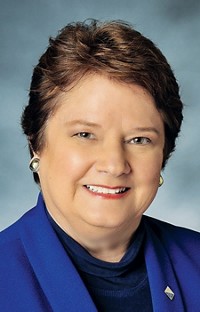Advertisement
Grab your lab coat. Let's get started
Welcome!
Welcome!
Create an account below to get 6 C&EN articles per month, receive newsletters and more - all free.
It seems this is your first time logging in online. Please enter the following information to continue.
As an ACS member you automatically get access to this site. All we need is few more details to create your reading experience.
Not you? Sign in with a different account.
Not you? Sign in with a different account.
ERROR 1
ERROR 1
ERROR 2
ERROR 2
ERROR 2
ERROR 2
ERROR 2
Password and Confirm password must match.
If you have an ACS member number, please enter it here so we can link this account to your membership. (optional)
ERROR 2
ACS values your privacy. By submitting your information, you are gaining access to C&EN and subscribing to our weekly newsletter. We use the information you provide to make your reading experience better, and we will never sell your data to third party members.
Careers
Dinner Party Conversation
by Bibiana Campos Seijo
August 24, 2015
| A version of this story appeared in
Volume 93, Issue 33
Speakers at conferences say many interesting, provocative, things. Often they also say funny, or seemingly irrelevant, things—but they are always trying to make a point. So when George Whitesides of Harvard University said, “One of the perils of middle age is that you go to dinner parties,” during his address to the board of directors at the American Chemical Society national meeting last week, you knew he was going somewhere. He was going to give advice.
He made this remark within the context of the public’s perception of chemistry and what chemists do. When chemists attend the perilous events that are dinner parties, other guests of course will ask, “What do you do?” Being one himself, Whitesides knows that responding with “I am a chemist” often engenders an “ugh.” So in recent years, he has developed a tactic that he recommended we try. If you want them to “go away and leave you alone” (not the best attitude to show if one is passionate about one’s subject), then you provide an explanation along the lines of “I work in a lab, researching statins, a cholesterol-lowering drug that inhibits enzyme HMG-CoA reductase …” They are generally gone before you can say HMG. If, on the other hand, you want to start a conversation, he suggested instead saying, “We—we being chemists—change the way you die.” That does it. You’ve got them. It’s now your opportunity to discuss your science and how it is that chemistry affects the way people live and die.
This is also where Carolyn Bertozzi, from Stanford University, was going when she spoke in a symposium on the public’s perception of chemistry jointly organized by C&EN and ACS’s Office of Public Affairs. Her strategy for communicating science to a lay audience has changed over the years and involved using combinations of the following statements: I am a professor at Stanford University. I teach chemistry. I study how cell surface glycosylation contributes to disease. I work for you.
The last one gets people interested, and scientists whose funding comes from the public should exploit this. Saying “I work for you” gives the listener a sense of responsibility, leaving them inclined to inquire about how your work may benefit society.
Bertozzi also spoke about her interactions with policy-makers on the issue of support for basic science. Besides emphasizing the “I work for you” statement in these conversations, she has also learned that it is best to focus on the here and now. Politicians are in power for a brief period of time, so scientists need to make their research directly relevant to today. She demonstrated her approach with the audience by pointing at the individuals in the first row (I was one of them) and saying: “Three of you will die of cancer in the next five to 10 years. Who’s it going to be?” The first thought that crosses your mind is “I hope it’s not me.” Then you look around and realize you are surrounded by young and healthy students, and it seems like the odds are not in your favor. Scare tactics? Maybe, but you’ve made up your mind: Let’s do something about it today.
Harvard’s Daniel G. Nocera shared the spotlight with Bertozzi during the symposium and agreed with this approach. However, he acknowledged that he was lucky when it came to interacting with the public and policy-makers; right now, “the world is very receptive to energy.”
Of course it was inevitable that, when discussing public perceptions of chemistry, the conversation turned to education: Why is it that so many people have such a visceral reaction to high school chemistry? Nocera lamented the struggle to attract and retain talent in the U.S. education sector, often “because pay is so lousy.” He cited Switzerland as an example of a nation that appreciates science. The reason for this? Teachers are among the highest-paid government employees, he argued. If we paid our teachers better, he suggested, we’d have better-trained educators who would in turn improve the understanding of our science.
I’m confident Whitesides would agree that higher pay for educators is a good thing. For one, it may result in less-perilous dinner parties for chemists.
Views expressed on this page are those of the author and not necessarily those of ACS.



Join the conversation
Contact the reporter
Submit a Letter to the Editor for publication
Engage with us on Twitter